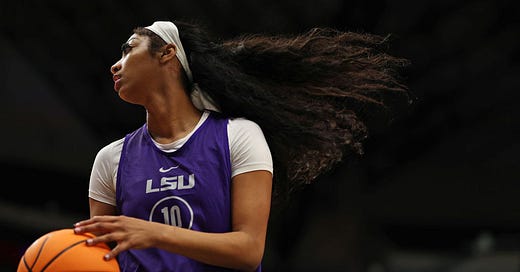It was midnight and everyone on the bus from Berlin to Krakow was sleeping. Except for me. With my headphones on, clutching my phone, I was watching snippets of the NCAA championship game, quietly pumping my fist in the air when the Iowa women’s team scored.
The connection was spotty and I frequently lost the video feed. For most of the game I was refres…



